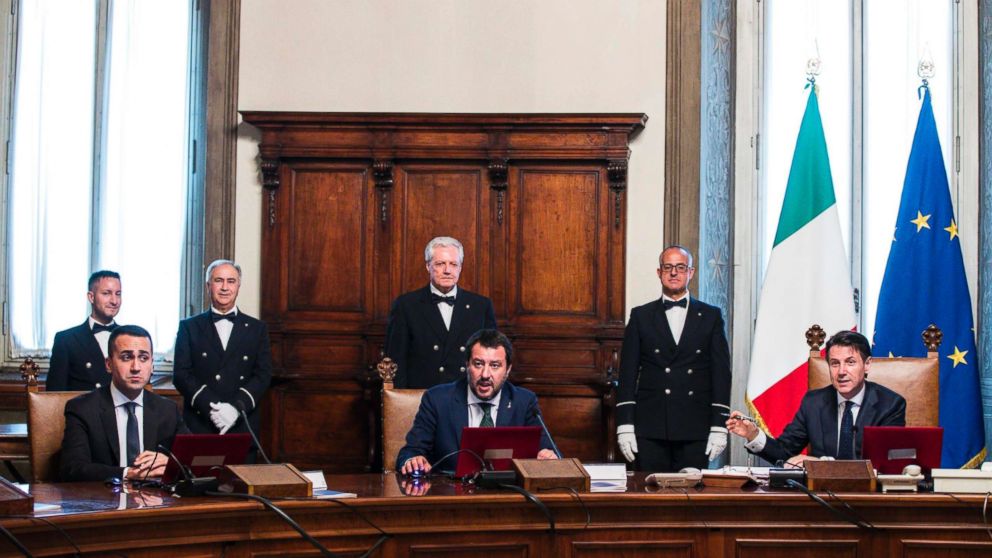A political stalemate ends, giving birth to a populist government in Italy
With the end of a political stalemate, a new government is born in Italy.

After months of political turmoil, Italy has its first new populist government.
Sworn in Friday, the next step for the new government is confidence votes in Parliament, which will be called early next week. The government is expected to win.
Giuseppe Conte, a 53-year-old law professor with no political experience whom Italian media has dubbed the "unknown professor," leads the newly-formed cabinet of 18 ministers, including five women and three non-political appointees.
The so-called "government of change" is based on an untested and unusual alliance: a government contract drawn up between two populist parties -- the anti-establishment 5-Star Movement, led by Luigi di Maio, and the anti-migrant, Euroskeptic League, led by Matteo Salvini.
The two parties won nearly half of the Italian votes in the March 4 elections.
The two populist party leaders are both deputy prime ministers as well as key ministers in the new government. Di Maio will be the new joint industry and labor ministry, aiming to introduce a basic income for job seekers and poor families; Salvini is the interior minister, with a goal of cracking down on undocumented migrants.
Meanwhile, Conte, the new prime minister, remains relatively unknown. Upon being named to the post, he said he would be "a lawyer for the [Italian] people," and said his team would work "to improve the quality of the lives of all Italians."
A week of political turmoil
Conte’s previous attempt to form a 5-Star and League government at the end of May ended when President Sergio Mattarella used his veto power and refused to accept the Euro-sceptic economist Paolo Savonna as economy minister.
International markets reacted negatively, however, to Italy’s continuing inconclusive political convolutions. The League also called for immediate elections while the 5-Star movement demanded the president's impeachment, also angering the markets.
Mattarella then proposed Carlo Cottarelli, a non-political former IMF official, to form a technocrat government to lead the country to new elections.
Nobody seemed happy with this solution.
Realizing he did not have the political support, Cottarelli stepped aside and let the two populist parties resume their plan to form a government.
Following reassuring words about the Euro from the two populist party leaders, a compromise was reached: Savonna was named instead to head the ministry of European affairs and Giovanni Tria, in favor of the Euro, was named economic minister.
Unchartered waters
Nobody believes this new government will have an easy ride. In Italy, opposition politicians see the new government contract as "dangerous" and "illusionist."
The new government has promised tax cuts and new welfare spending, which may not be acceptable to EU spending rules.
A new migrant policy, which Salvini insisted upon during his campaign, is also likely to cause friction with Italy’s European partners.
Italy’s political instability over the last few months has put other EU members on edge, concerned that this new government may leave the union and the Euro, which could precipitate the collapse of the EU.




